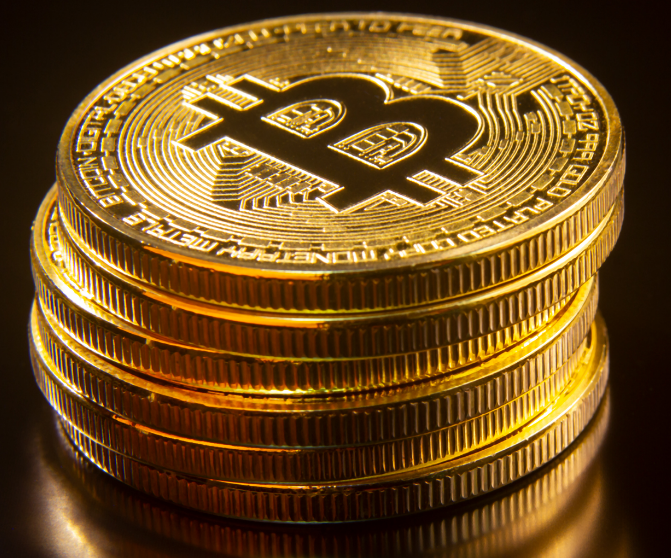Bitmain, the powerhouse of global bitcoin mining hardware, is planting its flag in the United States—likely in Texas or Florida—by the end of September. The reason? Tariffs. Politics is squeezing the tech giant’s profit margins, and it’s not waiting around to see what happens next.
The firm’s decision, confirmed via internal briefings and reported by Bloomberg, signals a significant strategic shift. By hiring 250 local workers and assembling mining rigs on American soil, Bitmain is aiming to sidestep economic headwinds blowing out of Washington.
A Quiet Giant Making a Noisy Move
Bitmain doesn’t shout. But when it acts, the entire crypto hardware industry listens.
Headquartered in Beijing, Bitmain has for years been at the centre of Bitcoin mining infrastructure. Along with fellow Chinese manufacturers Canaan and MicroBT, the three command over 90% of global hardware shipments.
In choosing to build in the U.S., Bitmain isn’t just diversifying. It’s reacting—fast. With Donald Trump back in the political spotlight and making tariff talk part of his 2024 election rhetoric, the firm is essentially insuring itself.
By manufacturing stateside, Bitmain can claim “Made in America” status, bypassing stiff import penalties on Chinese electronics that would otherwise choke profits.
Why Texas and Florida Are in the Running
There’s no shortage of reasons why either state might win Bitmain’s favour.
For one, Texas boasts vast, affordable land, deregulated energy markets, and a growing crypto community centred in Austin and beyond. Meanwhile, Florida offers a warm tax climate, business-friendly policies, and increasing tech appeal, especially around Miami.
One industry consultant close to the matter said:
“Bitmain’s calculus is straightforward. Go where the politics are less hostile, the power is cheap, and the workforce is available.”
Each state is quietly lobbying for the final nod, though Bitmain hasn’t officially confirmed the location yet. But real estate agents in both regions report inquiries for large industrial spaces suitable for “tech-heavy electrical use.”
Trump’s Tariffs Are Already Nudging Big Tech
Though Trump hasn’t retaken the White House yet, his influence is already rattling the market.
Back in August 2024, Bloomberg flagged how Trump’s proposed tariff plan could hit Chinese tech manufacturers hard—especially those without a Plan B. That red flag is turning into a red line now, with firms like Bitmain preemptively adjusting course.
Here’s a quick snapshot of Trump’s 2024 trade outlook compared to current policy:
| Category | Biden Admin (2023–2025) | Trump Proposal (2024 Campaign) |
|---|---|---|
| Tariff Rate on Tech | 7.5% (select categories) | Up to 60% (on China imports) |
| Semiconductor Imports | Conditional with licensing | Blanket hikes expected |
| Mining Hardware | Minimal restrictions | Targeted due to energy ties |
| US-China Tech Trade | Monitored | Threatened with severe sanctions |
Not all companies have the ability—or the funds—to move operations across oceans. Bitmain does. And it’s betting that localising assembly may keep it agile no matter who wins in November.
Local Jobs, Global Implications
While headlines focus on the politics and the crypto connection, local communities are watching the job count.
Bitmain plans to hire 250 employees for its new plant—roles expected to span engineering, warehouse operations, logistics, and assembly line work. Sources say training modules are being finalised with consultants in Austin and Miami.
To many, the irony is thick: a Chinese firm dodging Chinese tariffs by investing in America. But economic irony aside, for regions hungry for stable jobs, Bitmain’s arrival could mean a significant boost.
• Local hiring drives are expected to begin in late August
• Wages will likely be benchmarked to $22–$28/hour
• Onsite training and bilingual instruction may be provided
That said, some watchdogs are wary. “Crypto’s dirty secret is its energy usage,” one environmental expert told Bloomberg. “And Texas doesn’t exactly have an abundance of spare watts.”
Bitcoin Mining Stays Largely Chinese—For Now
Even with Bitmain’s American detour, the core of mining hardware manufacturing remains locked inside China’s borders.
Together, Bitmain, MicroBT, and Canaan control roughly 90% of global market share. That’s an eye-watering level of dominance in an industry that directly influences the health of Bitcoin’s decentralised backbone.
So while Bitmain’s US factory will likely handle final-stage assembly and packaging, the real guts—the silicon chips, the power circuitry—will still be coming out of Asia.
For regulators and crypto analysts, this move is tactical, not transformative. It may shift jobs and headlines, but it doesn’t shake the foundation of global mining just yet.
Still, it could set a precedent. If tariffs become permanent and trade wars heat up, Bitmain might not be the last to hedge its bets across borders.


 Bitcoin
Bitcoin  Ethereum
Ethereum  Solana
Solana  Cardano
Cardano  Chainlink
Chainlink  Avalanche
Avalanche  Sui
Sui  Polkadot
Polkadot  Mantle
Mantle  NEAR Protocol
NEAR Protocol  Bittensor
Bittensor  Internet Computer
Internet Computer  Quant
Quant  Cosmos Hub
Cosmos Hub  Algorand
Algorand  Aptos
Aptos  Filecoin
Filecoin  Render
Render  Jupiter
Jupiter  Arbitrum
Arbitrum  Stacks
Stacks  Sei
Sei  Injective
Injective  Celestia
Celestia  Pyth Network
Pyth Network  The Graph
The Graph  Optimism
Optimism  THORChain
THORChain  Immutable
Immutable  MultiversX
MultiversX  Akash Network
Akash Network  dYdX
dYdX  Flow
Flow  Illuvium
Illuvium  Kujira
Kujira  Manta Network
Manta Network  Metis
Metis  Dymension
Dymension